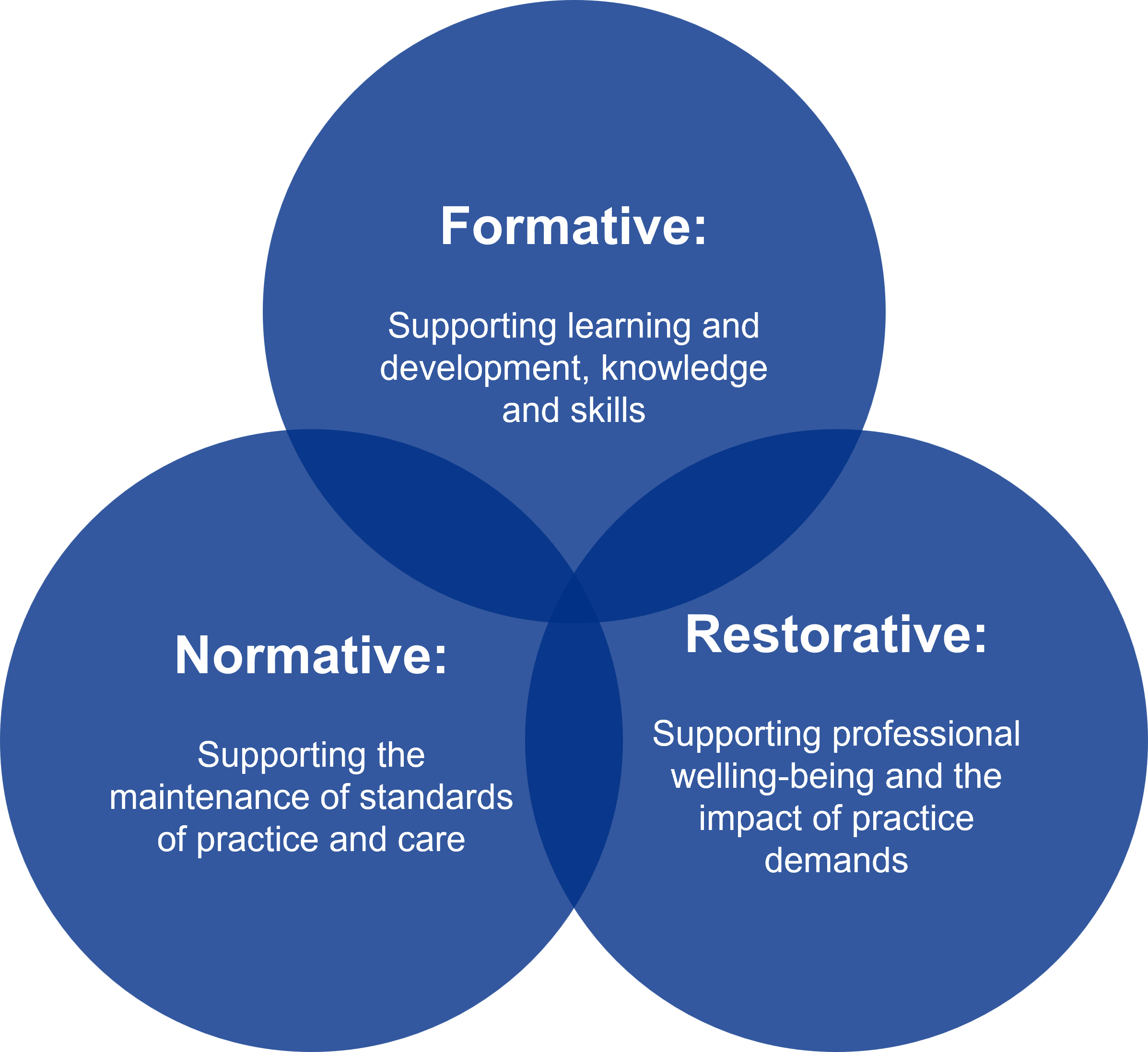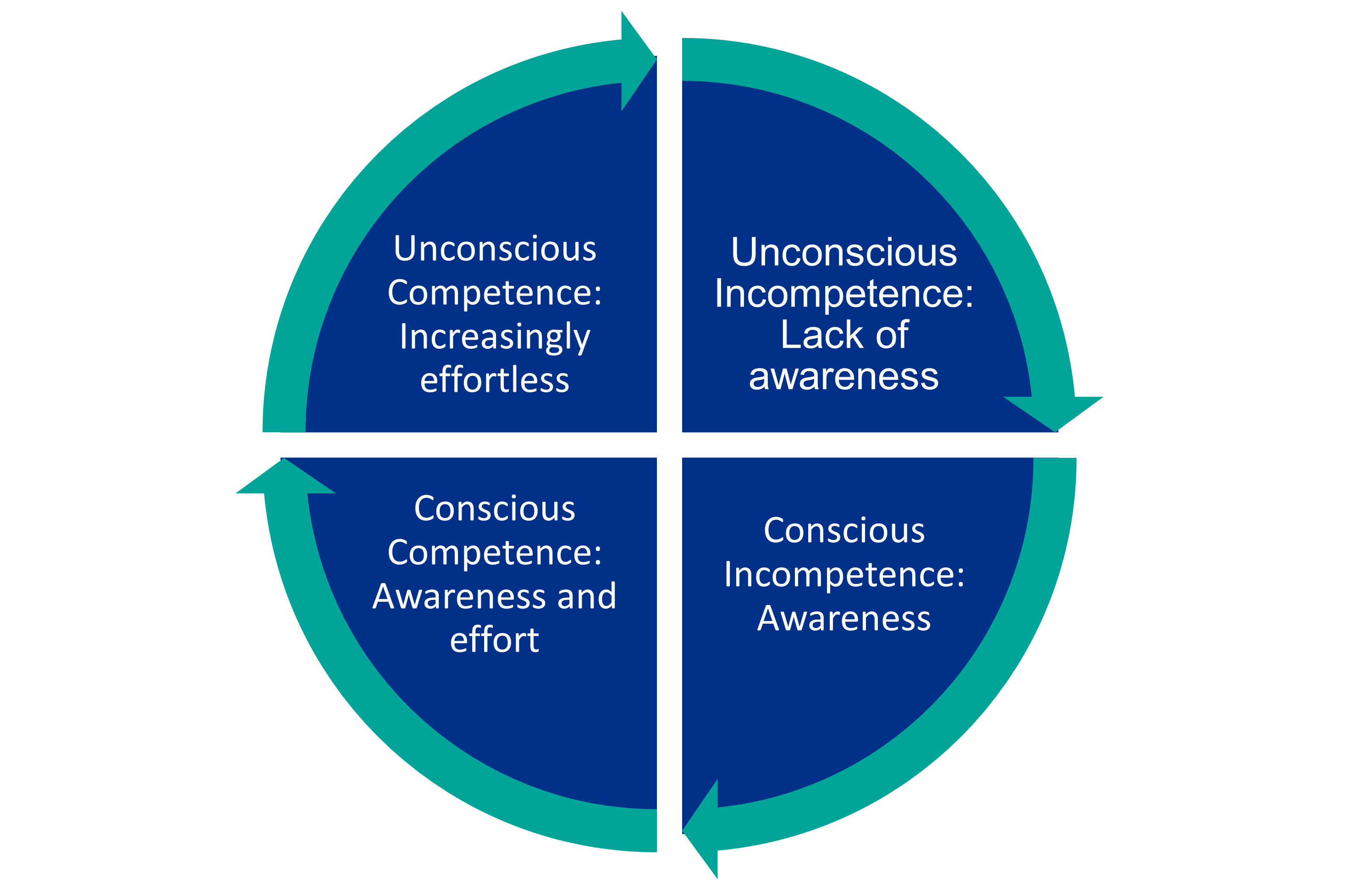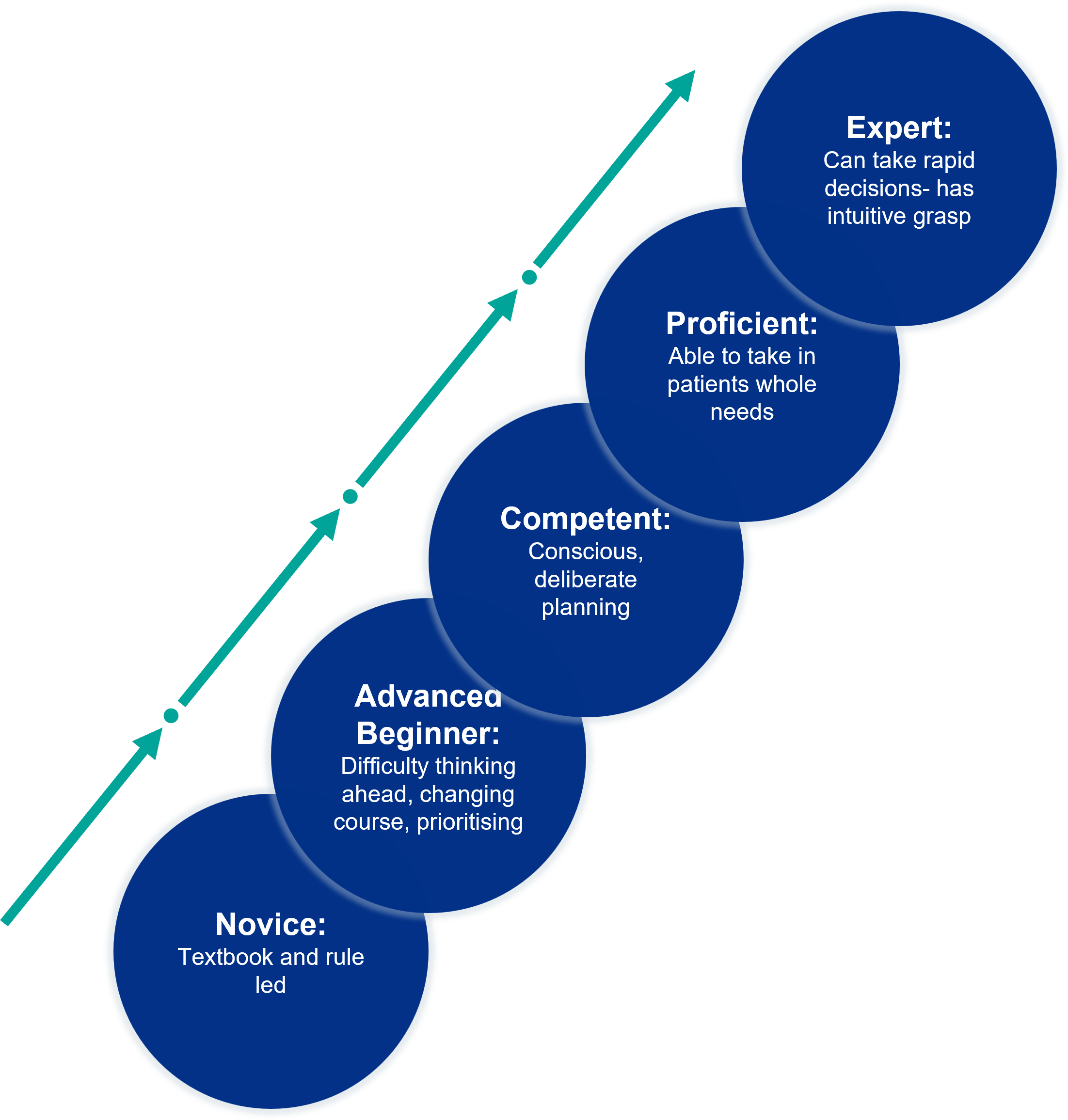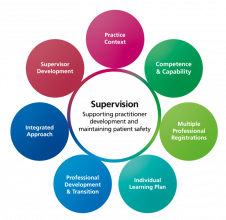Skills acquisition models and frameworks can be helpful in providing frameworks for both supervision and for supervisor training and development. Proctor’s model of supervision and the skills’ acquisitions models of either Benner or Peyton, remain widely cited. As with all models and frameworks, it is important to apply some critical awareness. Consider the strengths and limitations of each model in the context in which it is used.
Proctor’s (2001) model of supervision

Peyton’s (1998) model of skills’ acquisition

Benner’s (1984) model of skills’ acquisition

